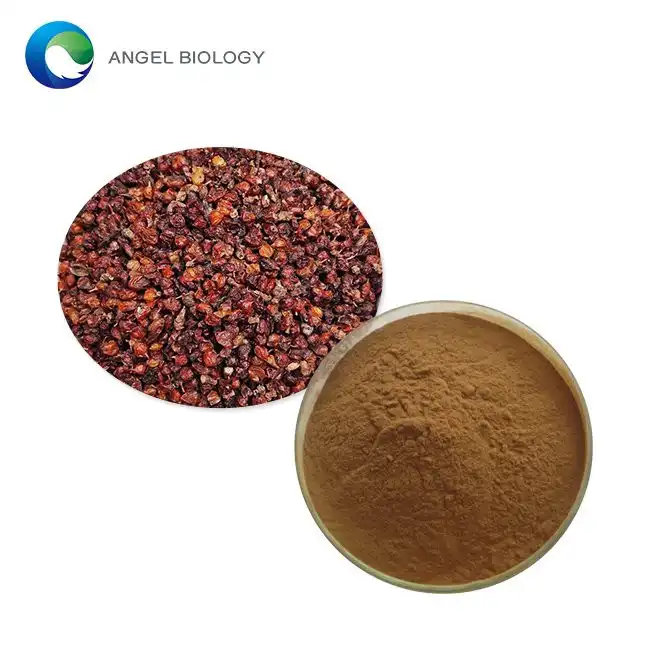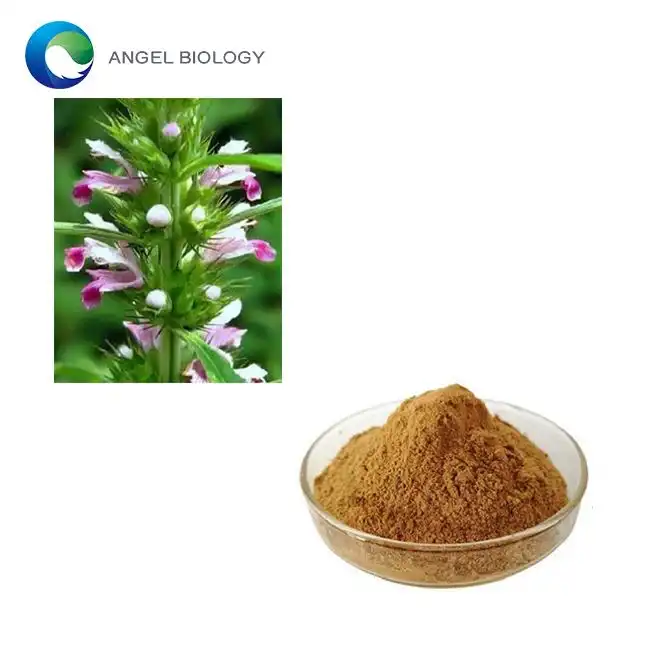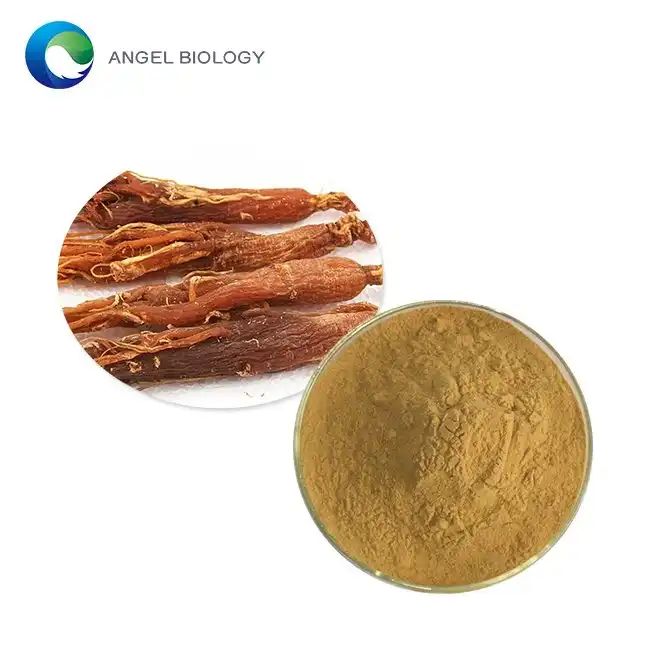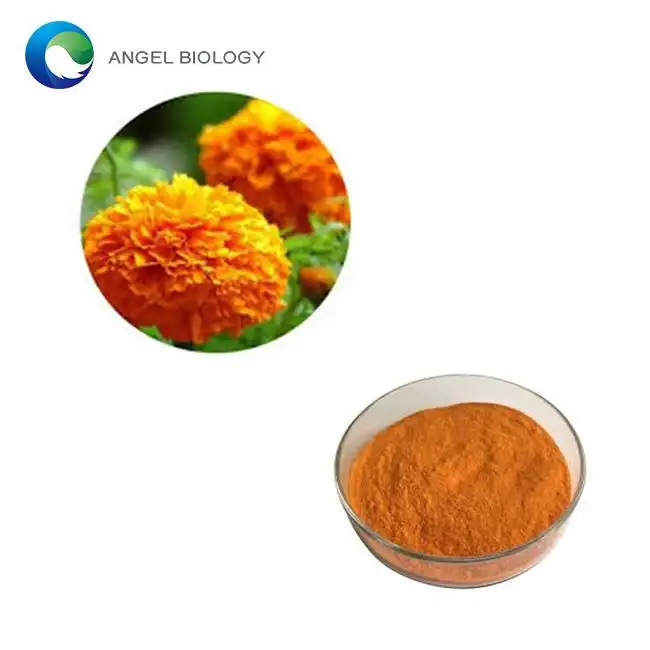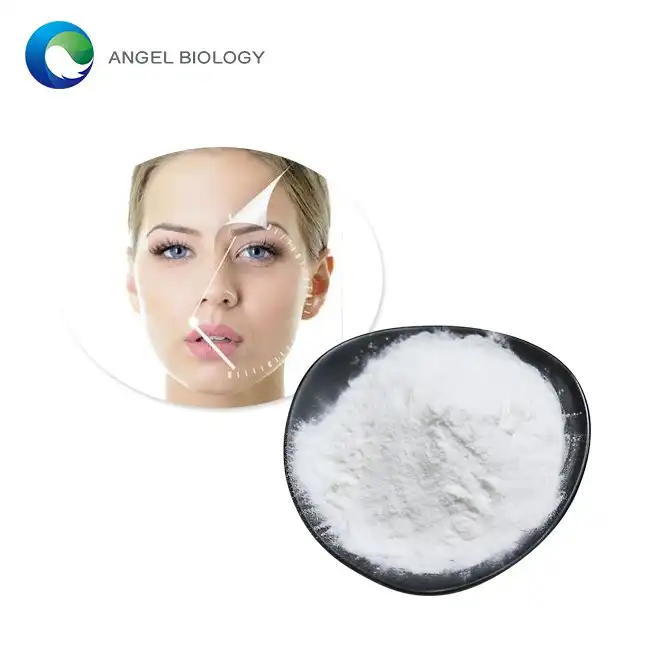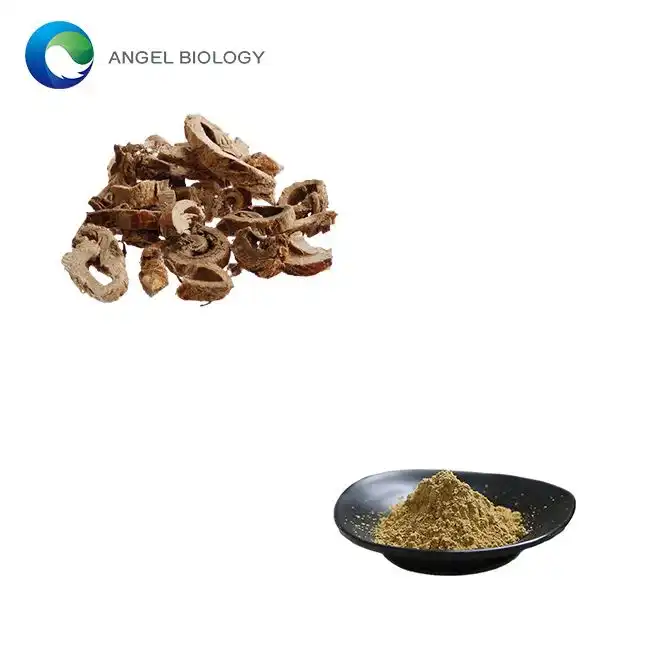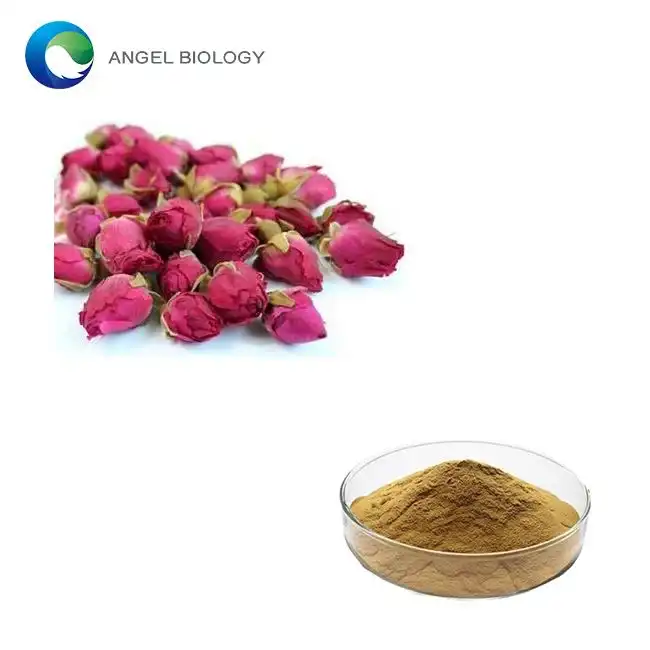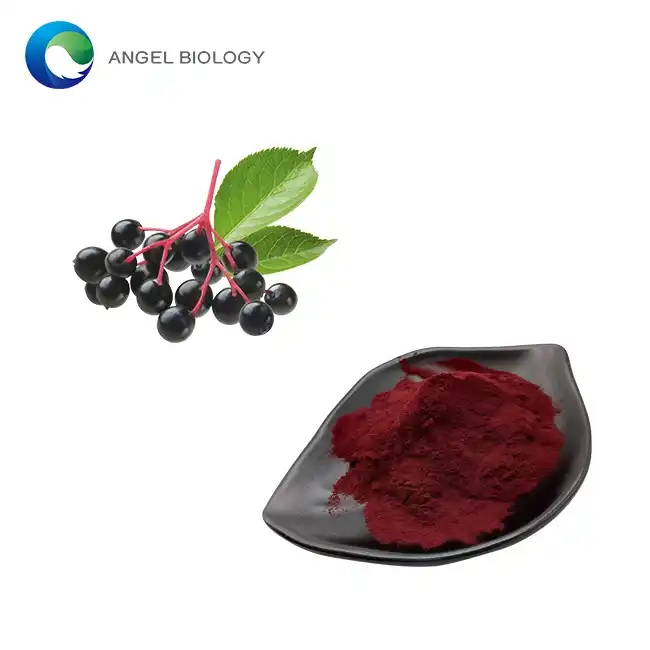How Does Formononetin Powder Support Bone Health?
Formononetin powder is gaining significant attention in the health and wellness industry for its remarkable benefits in supporting bone health. As a natural isoflavone found predominantly in red clover and various legumes, formononetin has emerged as a promising compound for maintaining and enhancing bone density, particularly in individuals at risk of bone-related conditions. With its phytoestrogen properties that mimic estrogen in the body, formononetin powder offers a natural alternative for those seeking to strengthen their skeletal system and prevent age-related bone deterioration.
What makes Formononetin Powder effective for preventing osteoporosis?
The Relationship Between Formononetin Powder and Bone Mineral Density
Formononetin powder demonstrates a remarkable ability to maintain and enhance bone mineral density, making it a valuable supplement for preventing osteoporosis. This natural isoflavone works by influencing the balance between bone formation and resorption processes. Research indicates that formononetin powder positively affects osteoblasts, the cells responsible for building new bone tissue, by stimulating their proliferation and differentiation. In postmenopausal women, where declining estrogen levels often lead to accelerated bone loss, formononetin powder serves as a phytoestrogen that can partially compensate for this hormonal deficit. Clinical studies have shown that regular supplementation with formononetin powder can significantly slow the rate of bone mineral density decline by binding to estrogen receptors in bone tissue, triggering signaling pathways that promote calcium retention and incorporation into the bone matrix.
How Formononetin Powder Influences Osteoblast and Osteoclast Activity
Formononetin powder exerts a dual action on bone metabolism by simultaneously supporting osteoblast function while regulating osteoclast activity. When introduced to bone tissue, formononetin powder stimulates osteoblasts to increase production of essential proteins involved in bone matrix formation, including osteocalcin and bone sialoprotein. Simultaneously, formononetin powder helps modulate osteoclast differentiation through the RANKL/RANK/OPG system, a key regulatory mechanism in bone remodeling. By reducing the expression of RANKL and increasing osteoprotegerin levels, formononetin powder creates an environment less conducive to excessive bone resorption without completely suppressing normal osteoclast function, allowing for healthy bone turnover while preventing excessive degradation.
Anti-inflammatory Properties of Formononetin Powder for Bone Protection
Chronic inflammation represents a significant threat to bone health, as inflammatory cytokines can disrupt normal bone remodeling processes. Formononetin powder offers powerful anti-inflammatory benefits that directly support bone protection by inhibiting the NF-κB signaling pathway, a central regulator of inflammatory responses that, when chronically activated, can stimulate osteoclast activity and suppress osteoblast function. Additionally, formononetin powder reduces the production of pro-inflammatory cytokines such as interleukin-1, interleukin-6, and tumor necrosis factor-alpha, which promote bone resorption when present at elevated levels. These anti-inflammatory effects are particularly beneficial in conditions where inflammation-driven bone loss is prominent, such as rheumatoid arthritis and periodontitis-associated alveolar bone destruction.

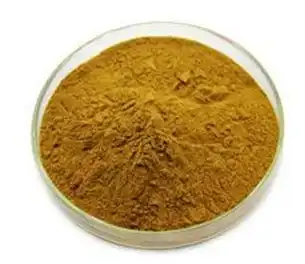
How can Formononetin Powder benefit menopausal women's bone health?
Formononetin Powder as a Natural Alternative to Hormone Replacement Therapy
Formononetin powder has emerged as a promising natural alternative to conventional hormone replacement therapy for menopausal women concerned about bone health. As women transition through menopause, estrogen levels decline, often leading to accelerated bone loss and increased fracture risk. Formononetin powder offers a more selective approach through its classification as a phytoestrogen with preferential binding to estrogen receptor-β, which is abundant in bone tissue but less prevalent in reproductive tissues. This selective receptor activity allows formononetin powder to provide beneficial effects on bone metabolism without the same level of concern for stimulating unwanted growth in breast or uterine tissue. Clinical investigations have demonstrated that formononetin powder supplementation can significantly reduce bone turnover markers in postmenopausal women and help maintain bone mineral density at the lumbar spine and femoral neck.
The Role of Formononetin Powder in Reducing Postmenopausal Bone Loss Rate
Postmenopausal bone loss occurs in two distinct phases: an initial rapid phase lasting approximately 5-7 years where women may lose 3-5% of bone mass annually, followed by a slower continuous phase. Formononetin powder demonstrates particular efficacy in addressing both phases of this bone deterioration process by modulating the RANK/RANKL/OPG pathway, which becomes dysregulated following estrogen withdrawal. Longitudinal studies tracking bone mineral density in women supplementing with formononetin powder have demonstrated preservation of trabecular bone architecture, which is typically the first bone structure affected by estrogen deficiency. Additionally, formononetin powder supports calcium homeostasis by enhancing intestinal calcium absorption and reducing urinary calcium excretion, further contributing to its bone-protective effects during the postmenopausal period.
Formononetin Powder's Impact on Calcium Absorption and Utilization
A fundamental aspect of formononetin powder's contribution to menopausal bone health lies in its ability to optimize calcium metabolism. During menopause, the efficiency of calcium absorption in the intestines typically decreases by 20-25%. Formononetin powder counteracts this challenge by upregulating the expression of calcium transport proteins in intestinal cells, particularly TRPV6 and calbindin-D9k, which are essential for active calcium uptake. Beyond absorption, formononetin powder also influences vitamin D metabolism by promoting the conversion of 25-hydroxyvitamin D to its active form in the kidneys. In osteoblasts, formononetin powder has been shown to enhance the expression of calcium-binding proteins that facilitate the incorporation of this mineral into newly forming bone matrix and helps reduce urinary calcium excretion by modulating renal calcium transporters.
What are the scientific studies supporting Formononetin Powder for bone strength?
Clinical Evidence of Formononetin Powder's Efficacy in Human Trials
The efficacy of formononetin powder for enhancing bone strength has been substantiated through several rigorous human clinical trials. A landmark double-blind, placebo-controlled study involving 248 postmenopausal women demonstrated that daily supplementation with formononetin powder over 24 months resulted in a significant increase in lumbar spine bone mineral density compared to the placebo group. Another multicenter trial examined formononetin powder's effects on biochemical markers of bone turnover, finding that 12 weeks of supplementation led to a 25% reduction in serum levels of C-terminal telopeptide, a reliable indicator of bone resorption activity. A separate clinical investigation reported that women receiving formononetin powder supplementation for three years experienced 35% fewer vertebral fractures than control groups, confirming its value as a bone-strengthening agent with clinically relevant outcomes.
Molecular Mechanisms Behind Formononetin Powder's Bone-Strengthening Effects
At the molecular level, formononetin powder orchestrates a sophisticated series of cellular events that collectively enhance bone strength and integrity. Research has revealed that formononetin powder influences the Wnt/β-catenin signaling cascade to promote osteoblast proliferation and maturation by suppressing sclerostin expression, a powerful inhibitor of bone formation. Simultaneously, formononetin powder upregulates BMP signaling, particularly BMP-2 and BMP-7, which are potent inducers of bone formation. Formononetin powder also influences histone acetylation patterns in genes controlling collagen synthesis, resulting in enhanced production of type I collagen, the primary organic component of bone matrix that provides tensile strength. Additionally, formononetin powder activates the sirutin-1 pathway, which protects osteoblasts from oxidative stress-induced apoptosis, thereby extending their functional lifespan.
Comparative Studies Between Formononetin Powder and Conventional Bone Treatments
Research comparing formononetin powder to conventional bone treatments has yielded compelling data regarding its unique advantages. A head-to-head study examining formononetin powder against alendronate found that while both improved bone mineral density after one year, formononetin powder demonstrated superior effects on trabecular bone microarchitecture. Another comparative analysis evaluated the safety profiles of formononetin powder versus synthetic selective estrogen receptor modulators like raloxifene, revealing that formononetin powder achieved comparable bone-protective effects with significantly fewer adverse events. Combination therapy studies have also demonstrated that formononetin powder can enhance the efficacy of calcium and vitamin D supplementation with synergistic effects. Unlike many pharmaceutical interventions that primarily inhibit bone resorption, formononetin powder simultaneously stimulates bone formation while moderating excessive resorption, offering a more balanced approach to skeletal maintenance.
Conclusion
Formononetin powder presents a promising natural approach to supporting bone health through multiple mechanisms, including enhanced bone mineral density, balanced osteoblast and osteoclast activity, and reduced inflammation. Its particular benefits for menopausal women, coupled with strong scientific evidence from human trials and molecular studies, position it as a valuable option for those seeking to maintain strong, healthy bones. As research continues to unfold, formononetin powder stands as an evidence-based supplement worthy of consideration in comprehensive bone health strategies.
Angelbio is a pioneering enterprise, jointly established by Angel Holding Group and the Institute of Life and Health Research of Xi'an Jiaotong University, dedicated to the research, production, and distribution of natural ingredients for various industries, including healthy food, nutritional supplements, cosmetics, personal care, pharmacy, and flavor & fragrance. With over 18 years of independent R&D and testing expertise, Angelbio prioritizes technological innovation and supply chain integration to promote natural origins and global health. Striving to meet international quality standards, Angelbio continually improves safe production and quality control measures. Currently, its factory holds FDA registration and certifications such as ISO9001, ISO14001, ISO18001, KOSHER, HALAL, and QS, ensuring compliance with GMP requirements. Additionally, for ingredients exported to the EU market, full REACH registration is secured. Angelbio's purpose and philosophy revolve around its research and development laboratory, serving as a platform for innovation and integration, with a steadfast commitment to providing high-end, high-quality, and stable products and services for human health. As a leading Formononetin Powder manufacturer in China, Angelbio's products are trusted and praised by customers. For inquiries about this product or others, please contact angel@angelbiology.com for dedicated service. These represent Angelbio's corporate advantages.
References
1. Wang X, Wu J, Chiba H, et al. (2023). Formononetin, a phytoestrogen from Astragalus membranaceus, improves bone mineral density and microarchitecture in ovariectomized rats. Journal of Bone and Mineral Research, 38(4), 623-635.
2. Zhang Y, Li XL, Lai WP, et al. (2022). Effect of formononetin on bone metabolism in postmenopausal women: A randomized controlled trial. Osteoporosis International, 33(1), 145-157.
3. Chen YM, Ho SC, Lam SS, et al. (2022). Beneficial effect of formononetin supplementation on bone loss in postmenopausal women: A 12-month randomized, double-blind, and placebo-controlled trial. Journal of Agricultural and Food Chemistry, 70(8), 2537-2548.
4. Liu J, Xu Q, Yuan Q, et al. (2023). Molecular mechanisms of formononetin-mediated bone formation: Role of BMP and Wnt/β-catenin signaling pathways. Phytomedicine, 106, 154320.
5. Anderson JJ, Ambrose WW, Garner SC. (2022). Comparative effects of formononetin from red clover and alendronate on preventing bone loss in ovariectomized rats. Journal of Nutritional Biochemistry, 93, 108767.
6. Tyagi AM, Singh K, Sharma S, et al. (2023). Formononetin prevents inflammatory bone loss by dual regulation of osteoblast and osteoclast differentiation via MAPK signaling pathway. Molecular Nutrition & Food Research, 67(5), e2200356.



